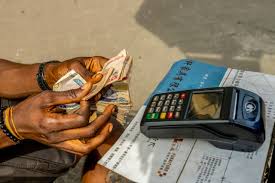BY JUDITH OBIANUA
Point-of-Sale (POS) operators in Asaba, the Delta State capital, are grappling with the biting effects of cash scarcity, which has forced them into the precarious practice of “buying money to sell money.”
They are calling on the federal government to address the situation and restore normalcy to cash transactions.
Speaking to our correspondent, Charles Chibueze, a roadside POS operator, lamented how the limited availability of cash is affecting his business. “We use money to buy money these days because there’s no money in circulation,” he said.
Chibueze explained that the maximum withdrawal limit of ₦20,000 from banks is grossly insufficient to sustain a POS operation. “If you must sustain this kind of business, you need a lot more cash. This scarcity is choking us,” he said, adding, “We are appealing to the government to reinstate the normal way of transactions.”
He also highlighted the high cost of accessing cash, which is being passed on to customers. “Imagine withdrawing ₦10,000 and being charged ₦300—it doesn’t make sense,” Chibueze said.
“The government needs to understand the hardship this is causing, especially with the current economic challenges.”
Aisha, another roadside POS operator, echoed similar frustrations. She noted that the hike in service charges is a direct result of the inflated costs they incur to access cash.
“We are charged heavily before we can even get money to run our businesses, so we have no choice but to increase our charges,” she said.
Aisha described the situation as a double-edged sword, impacting both POS operators and their customers. “It’s not easy for anyone,” she said, urging the government to intervene urgently.
The persistent cash scarcity has not only disrupted small-scale businesses like POS operations but has also further strained the daily lives of residents in Asaba, who are struggling to navigate an economy already fraught with challenges.
POS operators are hopeful that the federal government will take swift action to alleviate the burden and restore confidence in the country’s monetary system.


